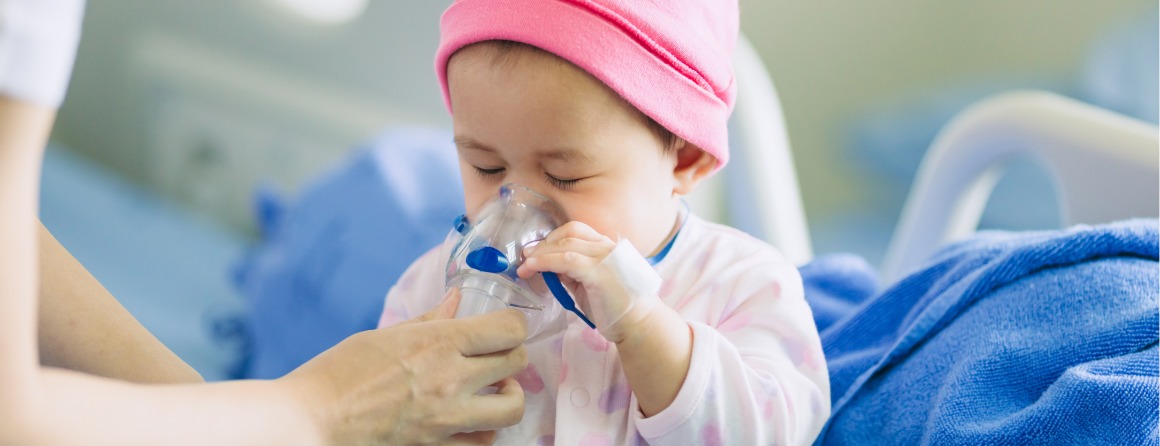Vaccine proves effective against the most severe type of pneumonia

A pneumococcal vaccine was effective at protecting children in Laos against the most severe type of pneumonia, a new study has found.
The research led by the Murdoch Children's Research Institute (MCRI) and published in The Lancet Regional Health - Western Pacific, found the PCV13-vaccine reduced hypoxic pneumonia and pneumonia requiring oxygen support by 37 per cent.
MCRI Dr Cattram Nguyen said although pneumococcal vaccines were known to reduce severe cases of childhood pneumonia, no studies from Asia had measured their effectiveness until now.
The study involved 826 children, aged up to five years, admitted to hospital with pneumonia. PCV13 reduced hypoxic pneumonia and pneumonia requiring extra oxygen by 37 per cent.
Dr Nguyen said because pneumonia was a leading cause of childhood deaths in Laos, the PCV13 vaccine had great potential to alleviate this burden of disease on the most vulnerable. Pneumonia that requires oxygen therapy is one of the severest manifestations of pneumonia.
"Universal health care did not exist in Laos until recently, and supplementary oxygen treatment was prohibitively expensive for families," she said.
In October 2013, Laos introduced the PCV13 vaccine into its national childhood vaccination program, supported by Gavi, the Vaccine Alliance. But the Ministry of Health requested evidence of the health benefits of the vaccine to support its ongoing use.
MCRI Professor Fiona Russell said Asian countries have been very slow to introduce PCV13 into their national immunisation programs.
"These results provide a compelling argument to continue childhood PCV13 vaccination in Laos and for its introduction into similar countries with high death rates from pneumonia," she said.
Professor Russell said the study also described a simple, low-cost single hospital-based method to assess vaccine effectiveness that was feasible for other low and middle-income countries to adopt. Measuring the success of this vaccine would usually require thousands of cases collected over many years of surveillance, and often involving many hospitals, she said.
"In this study, we enrolled children hospitalised with hypoxic and non-hypoxic pneumonia in a single hospital and compared pneumococcal vaccination rates between the two groups to determine vaccine effectiveness over about four years," she said.
Globally, lower respiratory infections, including pneumonia, are a leading cause of death in children under five years old, causing 800,000 deaths annually, predominantly in low- and middle-income countries.
Streptococcus pneumoniae (the pneumococcus) is estimated to cause over half of all pneumonia-related deaths in children under five years old.
This vaccine research was undertaken in collaboration with the study team based at the Lao-Oxford-Mahosot Hospital-Wellcome Trust Research Unit (LOMWRU). Researchers from the University of Melbourne, Australian National University, the Peter Doherty Institute for Infection and Immunity, University of Oxford, London
School of Hygiene and Tropical Medicine and Unite des Virus Emergents in France also contributed to the findings.
Publication: Rupert Weaver, Cattram D. Nguyen, Jocelyn Chan, Kurdophone Vilivong, Jana Y.R. Lai, Ruth Lim, Catherine Satzke, Malisa Vongsakid, Paul N. Newton, Kim Mulholland, Amy Gray, Audrey Dubot-Peres, David A.B. Dance and Fiona M. Russell. 'The effectiveness of the 13-valent pneumococcal conjugate vaccine against hypoxic pneumonia in children in Lao People's Democratic Republic: an observational hospital-based test-negative study,' The Lancet Regional Health - Western Pacific. DOI: 10.1016/j.lanwpc.2020.100014
In other related news:
The MCRI Oxygen project is one of six finalists nominated to receive the the MacArthur Foundation's 100 & Change grant, prized at US$ 100M. Partnering with the Clinton Health Access Initiative, the Oxygen project is led by MCRI Clinical researcher, Dr Hamish Graham who aspires to supply oxygen therapy to disadvantaged children around the world. You can read more about this project here.
Available for interview:
Dr Cattram Nguyen, MCRI Biostatistician Infection and Immunity
Professor Fiona Russell, MCRI Group Leader, Infection and Immunity
Media Contact
Murdoch Children's Research Institute
Phone: show phone number
Email:
show email address
About MCRI
The Murdoch Children's Research Institute (MCRI) is the largest child health research institute in Australia committed to making discoveries and developing treatments to improve child and adolescent health in Australia and around the world. They are pioneering new treatments, trialling better vaccines and improving ways of diagnosing and helping sick babies, children and adolescents. It is one of the only research institutes in Australia to offer genetic testing to find answers for families of children with previously undiagnosed conditions.
Funding
The study was funded in part by a grant from the Bill & Melinda Gates Foundation (OPP1115490) with additional support from the Wellcome Trust. The findings and conclusions contained within are those of the authors and do not necessarily reflect positions or policies of the Bill & Melinda Gates Foundation." The human respiratory syncytial virus testing was funded by Institute of Research for Development and Aix-Marseille University Centre for Tropical Medicine & Global Health, University of Oxford and the London School of Hygiene and Tropical Medicine. Fiona Russell received a NHMRC ECF and TRIP Fellowship Paul Newton, David Dance are supported by the Wellcome Trust that also core funds LOMWRU. Catherine Satzke was supported by a NHMRC Career Development Fellowship (1087957) and a Veski Inspiring Women Fellowship. The Murdoch Children's Research Institute was supported by the Victorian Government's Operational Infrastructure Support Program.



